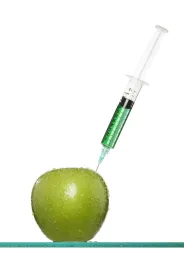Penalties imposed by the courts in relation to the adulteration of food can be serious. The Guardian and other papers in the UK reported recently that an Indian restaurant owner has been imprisoned for manslaughter following the death of a customer who suffered an allergic reaction (a severe anaphylactic shock) in January 2014 after eating a takeaway which contained peanuts, despite the fact that he made his severe allergy known to staff. In the case, the court reportedly heard evidence that cheaper ingredients had been substituted for spices.
The case also highlights the even more serious consequences for customers if allergens are not properly controlled and/ or where the allergen information given to customers is not correct. Clearly, allergy sufferers can be unwittingly exposed to potentially fatal risks and as such they may pay the ultimate price. Any court is unlikely to look favorably on a business which puts profit before personal safety and knowingly substitutes ingredients for financial reasons.
Financial penalties for breach of food information and food safety laws for manufacturers, restaurateurs and supermarkets are also significant, and have recently increased. On 11 March 2015 the previous £20,000 fine limit for magistrates in England and Wales was removed (under the Legal Aid, Sentencing and Punishment of Offenders Act 2012). For a conviction under the Food Safety Act 1990 in the magistrates’ court, the level of fine is now an unlimited amount (which is also the case for trial in a higher court). Relevant offences include: selling food not complying with safety requirements; selling food not of the nature, substance or quality demanded; and falsely describing or presenting food, all of which could potentially be relevant where undeclared allergens have been used.
Following the removal of the fine limit, in February 2016, definitive guidelines published by the Sentencing Council in 2015, came into force. The guidelines included food safety and hygiene offences for the first time (earlier guidelines covered corporate manslaughter and health and safety offences resulting in death only, although fine levels for these offences have also been updated in the new guidelines).
All indications to date are that the application of these guidelines by the courts will almost certainly result in significantly higher penalties for organisations convicted of such offences. They apply to organisations in England and Wales which are sentenced on or after 1 February 2016 (regardless of the date of the offence) and to all individual offenders aged 18 and over. The guidelines include a number of tables setting out starting points and ranges for sentences for the various offences. For example, large organisations (those with a turnover of £50 million or more) could face fines of up to £3 million for food safety and hygiene offences. It will be at the court’s discretion to go above these figures if they consider a case to be exceptional.
The Sentencing Council has published a series of case studies to assist the courts in imposing sentences for the various offences. They consider the steps in the guidelines and the facts that should be taken into account at each of the key steps. They confirm which range and starting point is appropriate but do not actually recommend what fine should be imposed. For food safety and hygiene offences:
-
Culpability will be rated low to very high – with very high being “a deliberate breach of or flagrant disregard for the law” and low being “the offender did not fall far short of the appropriate standard”.
-
Consideration must then be made to whether there was a low or serious risk of an adverse effect on the individual. For example, a “category 1” harm may have serious adverse effect(s) on individual(s) and/or have a widespread impact.
-
The court is then required to focus on the organisation’s annual turnover or equivalent to reach a starting point for a fine. Offenders which are companies, partnerships or bodies delivering a public or charitable service are expected to provide comprehensive accounts for the last three years, to enable the court to make an accurate assessment of its financial status.
Given the increase in potential fines for commission of a food safety and hygiene (and/or health and safety offence) the overall approach to risk management by operators and senior management will in our view be increasingly important. Prevention, rather than reaction, will help to minimise the risks of potentially very large fines and improvement in compliance systems before an incident occurs will help to achieve this.
The extent of precautions a business puts in place to protect against food adulteration will be relevant when seeking to establish a defence to such offences. Companies and professionals in the food industry should take all reasonable precautions and exercise all due diligence to avoid committing offences under UK legislation. Whether the actions which have been taken meet the test of ‘all due diligence’ and ‘all reasonable precautions’’ will ultimately be decided by the courts on a case to case basis. There is no ‘magic formula’, nothing that all businesses can do that will mean they will automatically meet the threshold of the due diligence defence. It will depend on all of the circumstances in the particular case. However, suitable precautions might include:
-
Horizon scanning exercises to assess the risks and weaknesses in global supply chains or in the information given to a business by its suppliers;
-
Considering and implementing safeguards to protect against identified risks, for example supplier audits, or random sampling of goods, all of which should be adaptable when horizon scanning identifies increased risk;
-
Ensuring transparency of supply chains and robust traceability systems;
-
Following recognised industry or trade body guidance, such as standards developed by the Food and Drink Federation or the British Retail Consortium;
-
Devising and testing crisis management plans for when a potential issue is identified; and
-
Documenting all systems and due diligence measures agreed and carrying out audits to check compliance with those systems across the business.
In addition to such practical precautions in relation to the products themselves, it may be sensible to consider your supply agreements and relationships. Supply chain partners can negotiate responsibility for recalls at the beginning of their relationship and may want to consider which party should manage the administration of any recalls and interaction with regulators. Unduly pressuring suppliers (for example, by failing to comply with basic payment terms) may inadvertently lead to them, in turn, cutting corners and increasing your exposure to unacceptable risks.
In terms of how allergen information is provided to customers, the FSA issues Guidance in relation to the provision of allergen information for loose foods (which would cover food supplied in restaurants). It states that where allergen information is not provided upfront in writing, signposting a customer to where they can get this information is required. This could be, for example, by way of a sign, notice or statement at the till point, on a menu board, or on the menu. For example, a sign might direct customers to ask staff for allergen information (although reliance only on verbal communication might make it difficult to demonstrate effective compliance). It also highlights that businesses should consider any risks of cross-contamination if they claim a food is free from a particular allergen.
Under the Food Information Regulations 2014, the primary enforcement mechanism in England for failure to comply with the EU Food Information for Consumers Regulation is Improvement Notices. However, failure to comply with allergen labelling/information requirements for both pre-packed and loose foods may still be dealt with from the outset as a criminal prosecution in the magistrates’ court. Clearly, as the recent manslaughter conviction shows, where the failure results in injury or even death, businesses can be prosecuted under other legislation (and civil claims may also follow).




 />i
/>i

